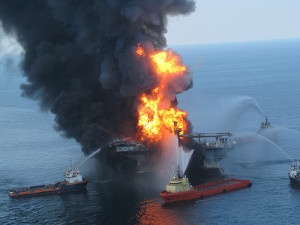BP Litigation and Politics
Today the House Committee on Energy and Commerce, chaired by Rep. Henry Waxman, D-Calif., holds a hearing on the BP oil spill. From the Committee:
“The Subcommittee on Energy and Environment will hold a hearing on legislation to respond to the BP oil spill and prevent future oil well blowouts on Wednesday, June 30, 2010, in 2322 Rayburn House Office Building. The hearing will focus on the discussion draft entitled the “Blowout Preventer Act of 2010,” which was released on Friday, June 26, 2010.”
Witnesses are David J. Hayes, Deputy Secretary of Interior; John Martinez, Consulting Production Engineer, Production Associates; and Elgie Holstein, Senior Director for Strategic Planning at the non-profit Environmental Defense Fund. The hearing, scheduled for 9:30 in 2322 Rayburn Building, will be webcast live.

Blowout preventer
The legislation named “Blowout Prevention Act of 2010,” “To protect public health and safety and the environment by requiring the use of safe well control technologies and practices for the drilling of high-risk oil and gas wells in the United States, and for other purposes,” was introduced June 29 by Waxman. The bill would require demonstrated ability to prevent and contain leaks before drilling; would institute blowout preventer requirements; would require regulations ensuring safe wells and cementing; and would require well control and blowout prevention inspectors.

Gusher in the water
Hearings are not the only action on the governmental and legal front, regarding the BP blowout. The company—already being sued by its own investors among others—is being sued by scuba divers. Another class action may unite shareholders around the world. In a move that could have consequences for companies involved in the Gulf of Mexico oil gusher, the Senate voted June 16 to eliminate the federal tax deduction for companies paying punitive damages—a move previously called for by President Obama. There has been no visible or audible reaction to the oil gusher from the newly elected conservative government in Britain, yet, but many British pensioners of modest means stand to be affected by BP’s disastrous lack of foresight. Governmental action may have to be taken.
The gusher and its consequences have yet to chasten the corporate world into refraining from push-back. The Chamber of Commerce—which has blazoned an unprecedented war chest for the 2010 fall elections, to oppose candidates it does not want—has already pushed hard, unsuccessfully, against Rhode Island judge nominee Jack McConnell. Nothing like being prepared: After all, there is no guarantee that the oil from Deepwater Horizon will not eventually work its way up the East Coast. Not just the Gulf Coast, but every eastern shoreline in North America, and every sea bed near the shorelines, may ultimately be affected. It’s the trial lawyers who make the news, but law firms that do environmental defense work are quietly hiring bigtime, right now. Northern Virginia firm McGuireWoods, for example, recently picked up a former aide to GOP Sen. Richard Burr of North Carolina.
Like BP, Transocean has also been lawyering up, while lobbying intensively to prevent legislation that could increase its civil liability.
Halliburton, which has done the same, had to file amended disclosure reports June 4. Halliburton had reported less than half the actual amount it spent on lobbyists in 2010–$50,000 in the first quarter as opposed to the actual $120,000. The company’s lobbying expenditures include $320,000 paid to Jackson Lewis, the law firm known informally as the worst of the worst of union-busting (euphemized as ‘workplace law’) law firms.
On a side note, the Borders book store chain also hired Jackson Lewis several years ago to prevent highly-qualified Borders employees from organizing. The Borders chain, widely praised for its quality personnel, book selection and in-store atmosphere, is struggling to avoid bankruptcy.
